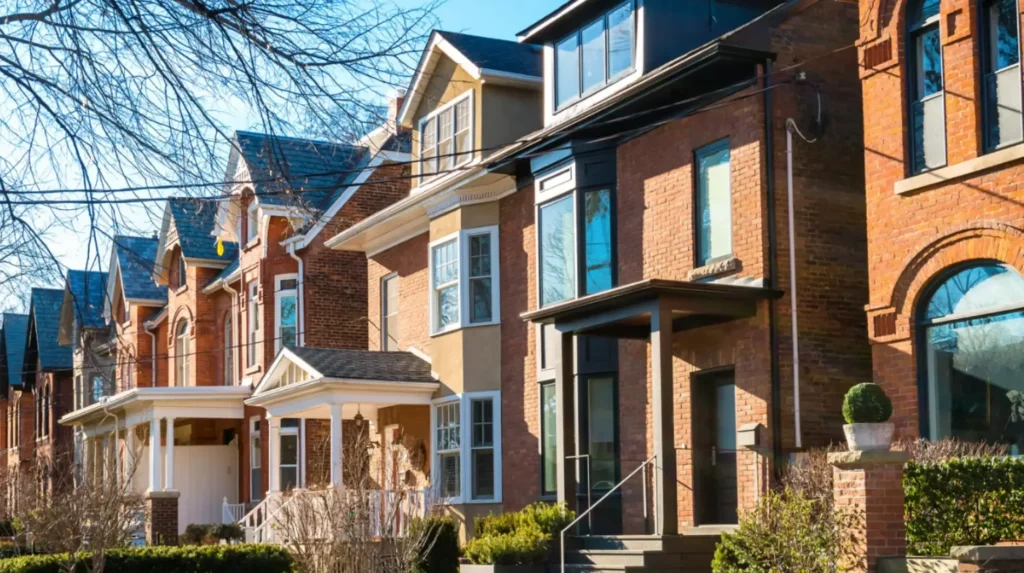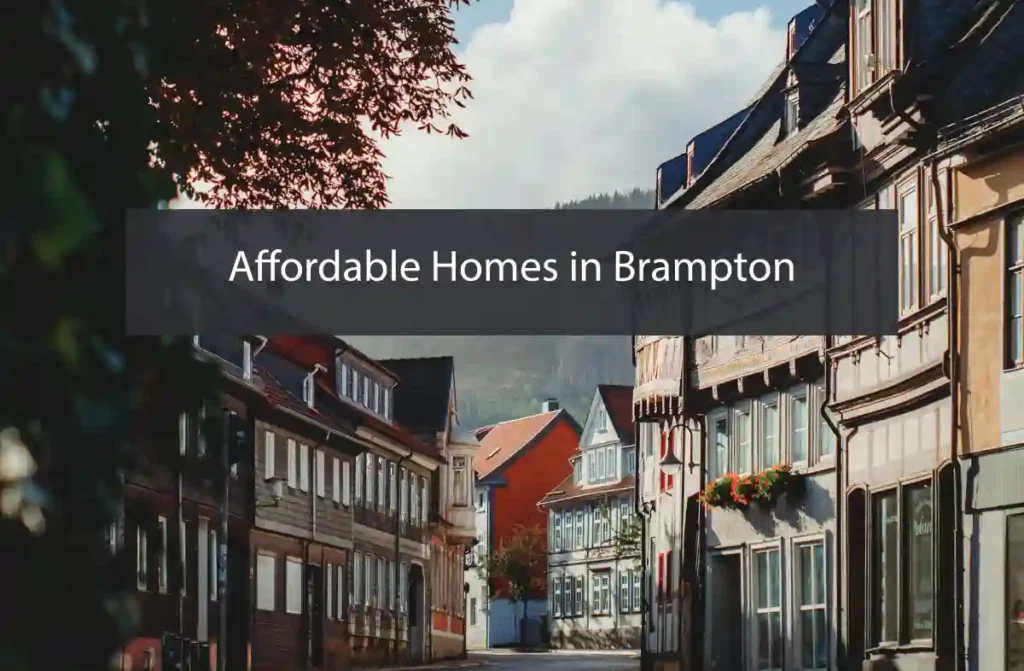Discover the latest insights, trends, and opportunities in the thriving Real Estate Market in Toronto, Canada. Stay informed about property values, investment prospects, and key factors shaping the industry.
Introduction
Toronto is strictly the most significant city in Canada and being one of the most diverse cities globally, the real estate market is incredibly active. Due to these factors such as economic growth, high standards of living and a multicultural population, many people both within and outside the country are eager to purchase the products. The real estate is active in the city by the records of high growth rate, demand and turnover as well as many opportunities to invest available in the area. From following the included article, I have been able to gain an understanding of the modern perspectives and tendencies offered regarding the property market in Toronto.
Historical Context
The property market has been dynamism in the recent past seeing the structure of Toronto transform through the decades. Generally, it has had a gradual appreciation over long periods but the rate of increase in the recent past is relatively steeper. Some important drivers that have attributed to this growth include; Social factors such as social demographic growth rates, Economic factors such as economic growth, and Physical factors such as limited stock. This element has also been shaped by the global economic trends, policy interventions of the government, and developments in the consumer market.
Current Market Insights
Housing Demand and Supply
High Demand: Toronto, like other cities in Canada, is described to be in continuous demand of housing through constant population growth, immigration and strategic job markets. It hosts multiple young professional and families and international investment.
Limited Supply: My opinion in this case is that the supply of houses on the market has not been able to match the demand thus creating a competitive market for the housing industry. Additionally, the building of additional houses, especially standalone homes, is hampered by scarcity of buildable acreage and the realities of zoning ordinances.
Rental Market: Another notable issue is that there is also significant activity in the rental housing market as people seek rental homes in Toronto. This is partly due to the fact that homeownership rates are still relatively low due to cost restraints thereby making renting more sustainable for some of the population.
Property Types and Prices
Detached Homes: Semi-detached homes are a popular type of housing and yet supplies is on a steady decline and prices are quickly going beyond the reach of the average buyer. A lot of areas have recorded a hike in the price of detached homes with much more emphasis on the usually preferred areas for homes.
Condos: Condominiums are relatively cheaper than other form of housing such as the detached houses and have dominated the market due to increased demand by property buyers. The condo market is stable, with fresh supply being constructed and forming a firm part of the city’s skyline.
Townhouses: Townhouses occupy a wonderful position in between single and two-family homes on the one hand and multiple-unit apartment-type structures on the other end. Families and people who are in search of extra living space other than installing an expensive single click home find townhouses attractive.
Luxury Market: There are also reports on the growth of the luxury real estate market in Toronto. Luxury condos and mansions among the other expensive properties are been bought by individuals with higher standard of living from around the world.
Neighborhood Trends
Downtown Core: Despite the changes in urban structure and dynamics, the downtown continues to attract significant interest in real estate development due to its potential as an employment center as well as for its accessibility to services and opportunities for leisure activities. We also find out that condos are the most in the downtown market.
Suburban Growth: Residential states are currently areas that are expanding rapidly due to increasing rates of population, search for cheap housing and lifestyle. Places like Mississauga, Brampton, and Vaughan are some of the places gaining popularity in this bracket.
Revitalization Projects: Many neighborhoods are already in the process of regeneration, and this has been popular among inhabitants and investors. The purpose of these projects is to develop more transport and other facilities, stimulate construction of housing, and, in general, achieve the enhancement of living standards.
Market Trends
Rising Prices
Price Appreciation: The prices has gone up significantly in recent years in spite of it being a major city. Some of the causes of this increase in the prices include the high demand, scarcity and low interest charges. What used to be merely a possibility is now a reality, where the price of homes in Toronto is currently ranking at one of the highest in Canada.
Bidding Wars: Housing purchase in Toronto often involves price competition and for many properties, there is usually price competition which leads to bidding. This is most apparent with attractive properties in good neighborhoods as well as new or well-maintained buildings.
Government Policies and Regulations
Mortgage Rules: New rules and regulations involving lending have altered buyer’s ability to purchase homes, especially through new rules such as stress test and required minimum down payments. These steps were taken to reduce volatile conditions and avoid over-speculation on dwelling units in the Real Estate Market in Toronto, Canada.
Foreign Buyer Tax: The government intervention in the market manifested through the imposition of a foreign buyer tax has brought certain changes including dealing with speculators. This kind of tax is meant to encourage the provision of affordable rates of housing for people in the located area.
Affordable Housing Initiatives: There are different ways that the government has endeavored to provide subsidies for the acquisition of affordable housing to even facilitate grants, subsidies, and incentives to developers.
Technology and Real Estate
PropTech: Bringing technology into the real estate sector, ‘PropTech’ is revolutionizing the scenario. Agents engaged in presenting virtual or online tours, online listing, and digital form of transactions practices that have developed the process of buying and selling.
Smart Homes: It is a fact that an increasing market demand has emerged as populations seek to incorporate smart home technology into their daily lives. Consumers are demanding homes that integrate high-tech features like smart heating systems, security, and home automation technologies.
Sustainability and Green Buildings
Eco-Friendly Developments: It was established preeminently that environmentally-conscious and sustainable real estate developments are the future. Consumers today have a very important consideration for the purchase of their homes which is the aspect of energy conservation in green built homes and other developments.
LEED Certification: Recipients of LEED accreditation are preferred especially for properties situated in more developed countries. These buildings follow environmental compliance, and the implementation of features like benefits of operating costs and better IAn quality.
Investment Opportunities
Rental Properties
Steady Income: Real estate investment can be helpful since it has the potential to bring regular cash flow since most of the tenants will pay their rent in monthly installments. High demand for the rentals implies that landlords are sure to have steady business by filling the units and that the unit yields good rental income.
Long-Term Appreciation: Housing investments within the Toronto region have always provided a mode of wealth that appreciates in the long run. The way of getting passive income for an investor is investing in rental houses or other real estate property since it can provide an opportunity to receive rent and earn on the growth of its value in the future.
Pre-Construction Condos
Lower Entry Costs: Bought before construction, condos are comparatively cheaper per square meter than homes that are resold. The opportunity to avail price appreciation during the construction period can also be enjoyable for buyers.
Customization Options: Ordinarily, buyers get the chance to select the finishes and the design of the units during what is sometimes referred to as pre-construction stage.
Commercial Real Estate
Diverse Opportunities: Toronto’s CRE market is characterized by a range of investment opportunities starting from the office, through the retail and industrial segments.
Growth Potential: New York city has a stable and healthy economic base and this base can only mean one thing, a steadily growing populace that will require such commercial units. To be able to attract the intended investors, it is important that they understand that investing in commercial properties has the potential to bring handsome profits.
Challenges in the Real Estate Market in Toronto, Canada
Affordability
High Prices: The problem of affordability is still holding a great place among the biggest issues faced by the not-for-profit buyers. High housing cost also mean that more people prefer to rent than own a home because of the higher cost in homeownership.
Income Disparity: Fluctuations in the property prices and average salaries have resulted in a disparity whereby it has become nearly impossible for first-time homebuyers to purchase homes.
Market Volatility
Economic Factors: Key drivers for the real estate market are; Interest rates, inflation and other factors that are facing the global economy. Another factor that can influence market conditions is fluctuation in the property values and therefore affect the returns on investment.
Policy Changes: The government can cause fluctuation by altering policies or legal frameworks regarding new innovations. This is general knowledge that policy makers may decide in future to change the existing favorable policies for investors and buyers of the respective stocks.
Supply Constraints
Limited Land: A shortage of land for development has emerged, especially for the areas which are considered more profitable. This limits the supply and can inevitably translate to increased prices of properties in the area or country.
Zoning Regulations: Selling regulation and construction standards may influence development in the sense they control constraints on supply of new residential units.
Real Estate Market in Toronto

Conclusion
Currently, the Real Estate Market in Toronto, Canada signifies conditions of high demand and limited supply as well as prices that are rising. The fact remains that the market remains full of investment opportunities and potentials despite barriers like cost of affording the common stock, or fluctuating markets. Analysis of current knowledge and trends may prove useful for both buyers, who wish to invest in new products, and sellers, who will need to adapt to a new market in order to succeed. Slow and steady growth, a large and welcoming population, and a ludic quality of life continue to make Toronto one of the best options for purchasing property.
FAQs
Why are property prices in Toronto so high?
Real estate prices remain high because demand for homes in Toronto is high, and the number of structures that are available to meet this demand is small, besides the well-performing economy. Some other causes include population growth where people require more food, immigration where immigrants need shelter and other necessities, and low-interest rates that drive up demand for products.
Is it a good time to invest in Real Estate Market in Toronto, Canada?
For these reasons, buying properties in Toronto can be a wise decision as the city has evident development indicators, the need for homes, and the likelihood of earning back the money invested in real estate. But they need to remember certain factors such as the general situation in the market, their needs, overall capabilities to buy the stock and so on.
What are the most popular neighborhoods for real estate investment in Toronto?
Favourite areas for investors in Toronto are the downtown area, zones with renovation activities, and regions of suburbs in the process of development. As mentioned above, each of the neighbourhoods may be described differently in terms of available investment possibilities depending on the kinds of properties, additional facilities, and prognosis of evolution and development.
How do government policies impact the Real Estate Market in Toronto, Canada?
These include debt servicing directives, first time home buyers’ incentives, foreign buyer taxes, rent control measures and affordable housing programs affect demand, affordable price levels, and the existing housing stock in the Toronto real estate market. They are meant to keep the market stable and explain why eligibility for affordable housing programs is getting narrower.
What are the advantages of investing in pre-construction condos?
There are several benefits associated with investing in pre-construction condos including; low costs of entry point, possible chances to appreciate during the development process of the property and even nicer opportunities to alter units. Due to these reasons, pre-construction condos are a popular choice for investors and entry-level homebuyers.
How is technology changing the Real Estate Market in Toronto, Canada?
Technology is playing an increasing role as a tool of change in the context of Toronto’s real estate market with the help of online tours, listings, transactions as well as smart home technologies. All these improvements make the buying and selling process less cumbersome and also improve the overall perception of properties in the market.
What should first-time buyers consider when entering the TReal Estate Market in Toronto, Canada?
The Toronto real estate market requires them possible costs, funding, the current market, and their future objectives before they make a choice. It is also advisable to carry out research on the neighborhoods, property type, or seek advise and recommendations.





